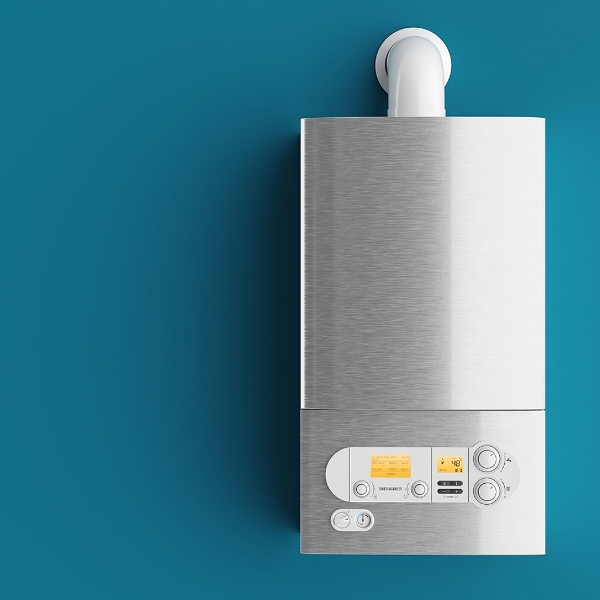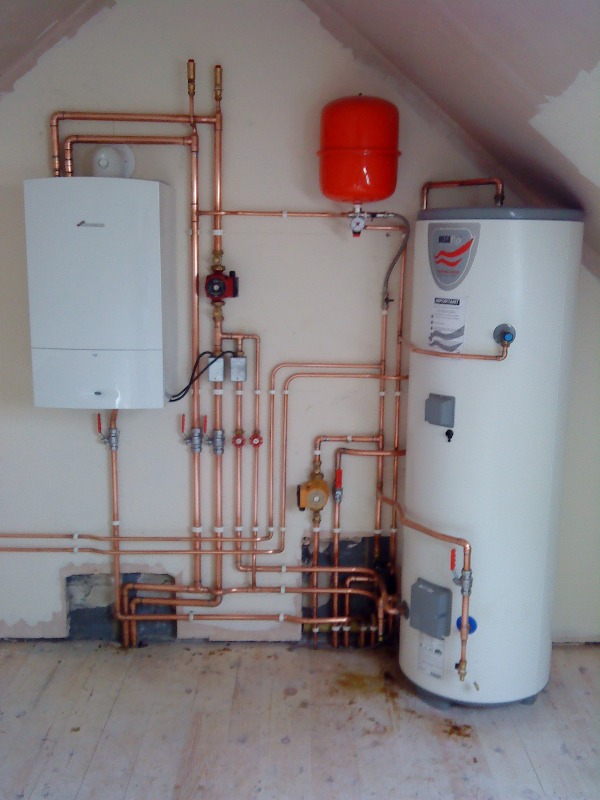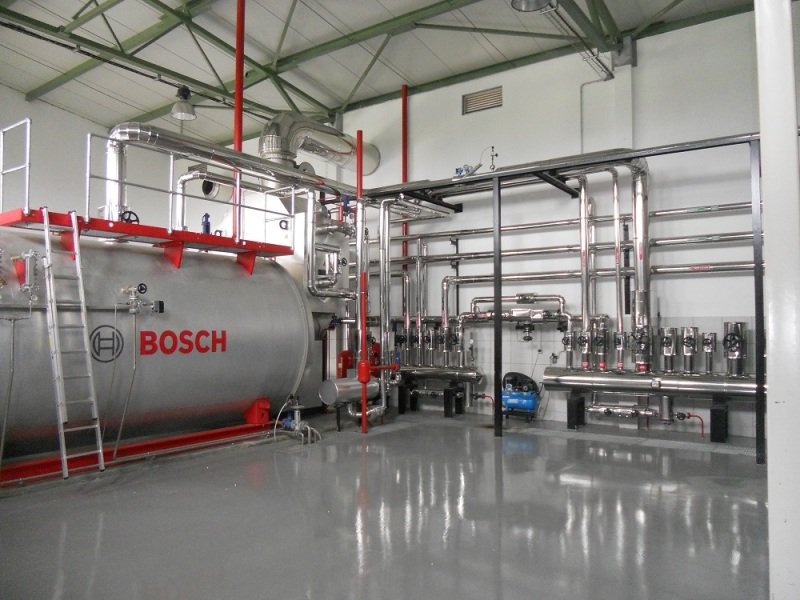Many factors like property size, number of showers, number of bathrooms, water pressure, and the type of property plays a role when choosing the best boiler for your home. Here are the three most commonly used boilers used on properties.
Combi Boilers

These are probably your most cost-effective residential boiler for most houses. They control both central heating and hot water, and their energy efficiency makes them the perfect choice for environmentally conscious consumers. The water is heated right from the mains when a tap is turned on. You have an unlimited hot water supply whenever you need it. The unit has no water tank or cylinder, which means you’ll be saving on installation time and space in your home.
Advantages
- They are responsive to tap utilization and temperature.
- There is no waiting time for central heating and hot water.
- Compact selection for homes that have limited space.
- Water is delivered directly from mains.
- Offer powerful showers without needing a pump.
- They are easily maintained since no pipework needs to be installed.
- No necessity for loft space.
Disadvantages
- It may not be an ideal choice for houses with low water pressure.
- You can’t run two baths or shower simultaneously.
- Leaks can lead to loss of water pressure.
- Not the best application for larger homes.
- It may not be companionable with your shower.
- They necessitate a proper level of mains pressure.
System Boilers

If you have more than just one bathroom, a system boiler may be the perfect choice for you. They necessitate a hot water storage cylinder, but no water tank. When it comes to boiler service, this option has a relatively easy and quick installation. The expansion vessel and pump are inbuilt, discarding the need for a header tank. With no tank, homeowners don’t have an issue with leaks or frost damage. They are easily maintained and an excellent choice for larger houses with more than one bathroom.
Benefits
- Reasonable running costs.
- Space-saving and compact design.
- Continuous hot water supply.
- An expansion cistern is not needed.
- Well-matched with solar thermal systems, therefore, a highly energy-efficient choice.
Disadvantages
- You may have to wait for the water to reheat once the hot water runs out.
- Space must be found for the cylinder.
- The size of the tank prescribes how much water can be used.
- Necessitates insulation to stop heat loss.
Conventional Boilers
Conventional boilers, also referred to as open vent, regular, traditional, or heat only boilers, usually have a water storage tank and a cylinder. They are not the best choice space-wise, but they can offer large volumes of hot water to several bathrooms, making them the best-suited applications for large households. They are compatible with solar heating systems.
Advantages
- They can supply water to numerous taps and bathrooms simultaneously.
- Perfect for homes in areas that have low water pressure.
- An energy-efficient option due to their compatibility with solar thermal systems.
Disadvantages
- They are not compact.
- You don’t have hot water on demand and may need to wait for it to warm up.
- The installation cost can be higher and more comprehensive due to the necessity to install both a tank and cylinder.

